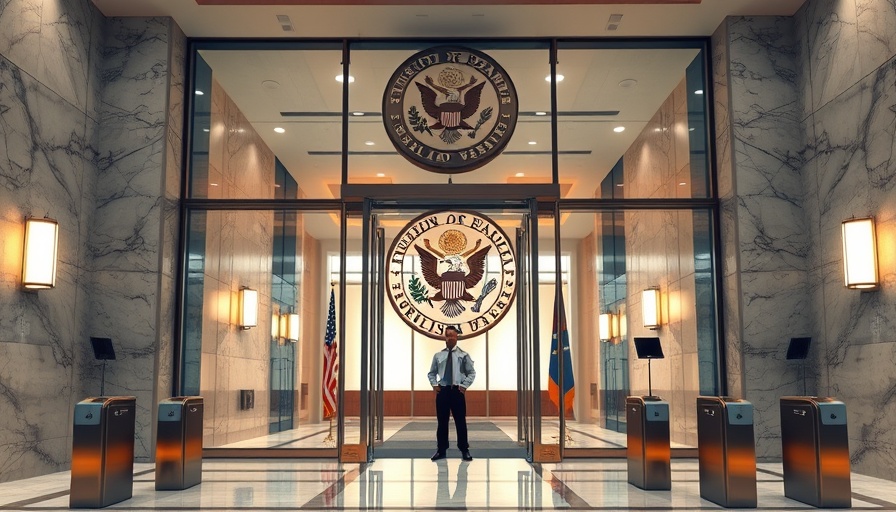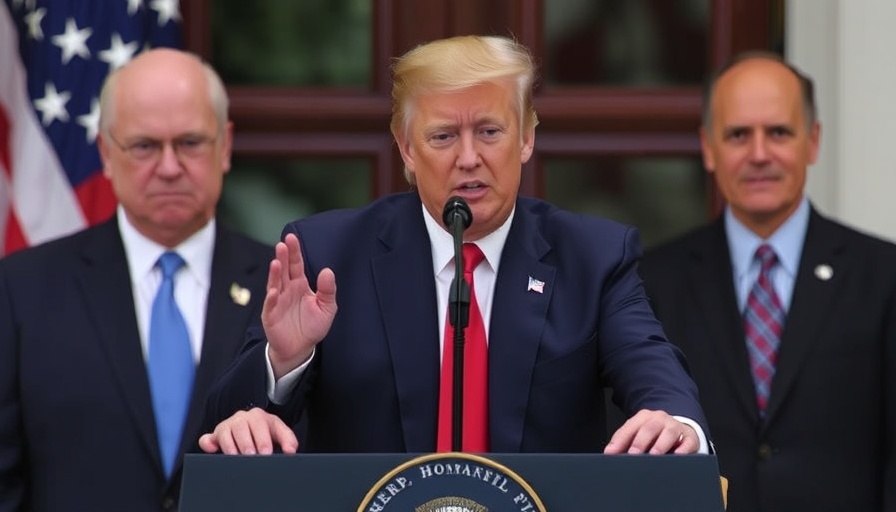
Marla Maples Champions a Greener Future
Marla Maples, a notable figure in the environmental advocacy realm, has recently raised her voice for cleaner skies in America as the U.S. Environmental Protection Agency (EPA) pushes for legislation banning weather-altering practices. This initiative aligns with broader efforts to combat climate change and maintain the integrity of natural weather systems. The implications of such a ban could resonate across various sectors, creating both challenges and opportunities for industries reliant on weather-consenting technologies.
Climate Change and its Effects on American Policies
The climate crisis has rendered weather manipulation a topic of fierce debate, with proponents arguing that it offers a temporary bandage for larger environmental issues. However, as Maples advocates for preservation over modification, the conversation shifts back to the essential role of authentic weather patterns in maintaining ecological balance. This growing concern over climate change connects to larger discussions on environmental responsibility, with recent polls indicating that Americans are increasingly prioritizing climate policy in voting patterns.
The Legislative Landscape: A Bipartisan Challenge
The push for banning weather manipulation invites significant legislative attention. Historically, climate-related proposals face challenges due to partisan divides in Congress. Yet, as public sentiment evolves, bipartisan support becomes more crucial. This scenario presents a unique opportunity for Democrat and Republican lawmakers to work collaboratively towards a common goal that appeals to their constituents’ demands for environmental protection while navigating political landscapes riddled with gerrymandering and lobbying influences.
Public Advocacy: The Frontlines of Change
Maples' involvement exemplifies how influential public figures can mobilize the average citizen towards ecological advocacy. The connection between celebrity influence and public engagement can raise awareness and incite action, essential in times when legislative change feels stagnant. Environmental movements often leverage such influence to amplify their messages, pushing through necessary reforms in local, state, and federal policy.
Forecasting the Future of Environmental Policy
Looking ahead, the implications of the EPA's potential ban touch on various spheres of American life. A commitment to cleaner skies might herald significant changes in renewable energy initiatives, bolstering sectors focused on sustainable solutions. The actions we take now, as Maples emphasizes, may greatly define America’s environmental legacy and contest its standing on the global stage. Furthermore, future elections could be swayed by candidates placing climate issues at the forefront of their platforms, underlining the necessity for improved voter turnout in swing states where environmental concerns are paramount.
The Role of COVID-19 in Climate Change Awareness
Interestingly, the COVID-19 pandemic acted as an inadvertent educator in environmental matters. Reports from the early pandemic indicated improvements in air quality as human activity diminished temporarily. This offered a stark reminder that our actions possess immediate and profound impacts on the environment. As we recover, there's an urgent need for policies that address long-term sustainability, independent of weather manipulation methods. With the federal government’s robust role in climate legislation, the intersection of public health and ecological integrity becomes clearer.
Conclusion: Taking Action for a Cleaner Future
As Marla Maples continues to advocate for cleaner skies, the importance of collective and legislative action cannot be overstated. The time for embracing genuine sustainability initiatives is now, as environmental challenges grow increasingly intricate. The potential ban on weather alteration by the EPA reflects a turning point in American climate policy, signaling a shift away from artificial solutions towards holistic, community-driven environmental stewardship.
Engaging in this vital discourse ensures that each individual contributes to the larger conversation surrounding climate change. Whether advocating for sustainable practices at a local level or participating in national dialogue, the call to action rings clear—our planet’s future hinges on the choices we make today.
 Add Row
Add Row  Add
Add 




Write A Comment